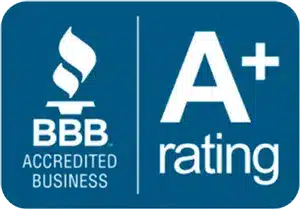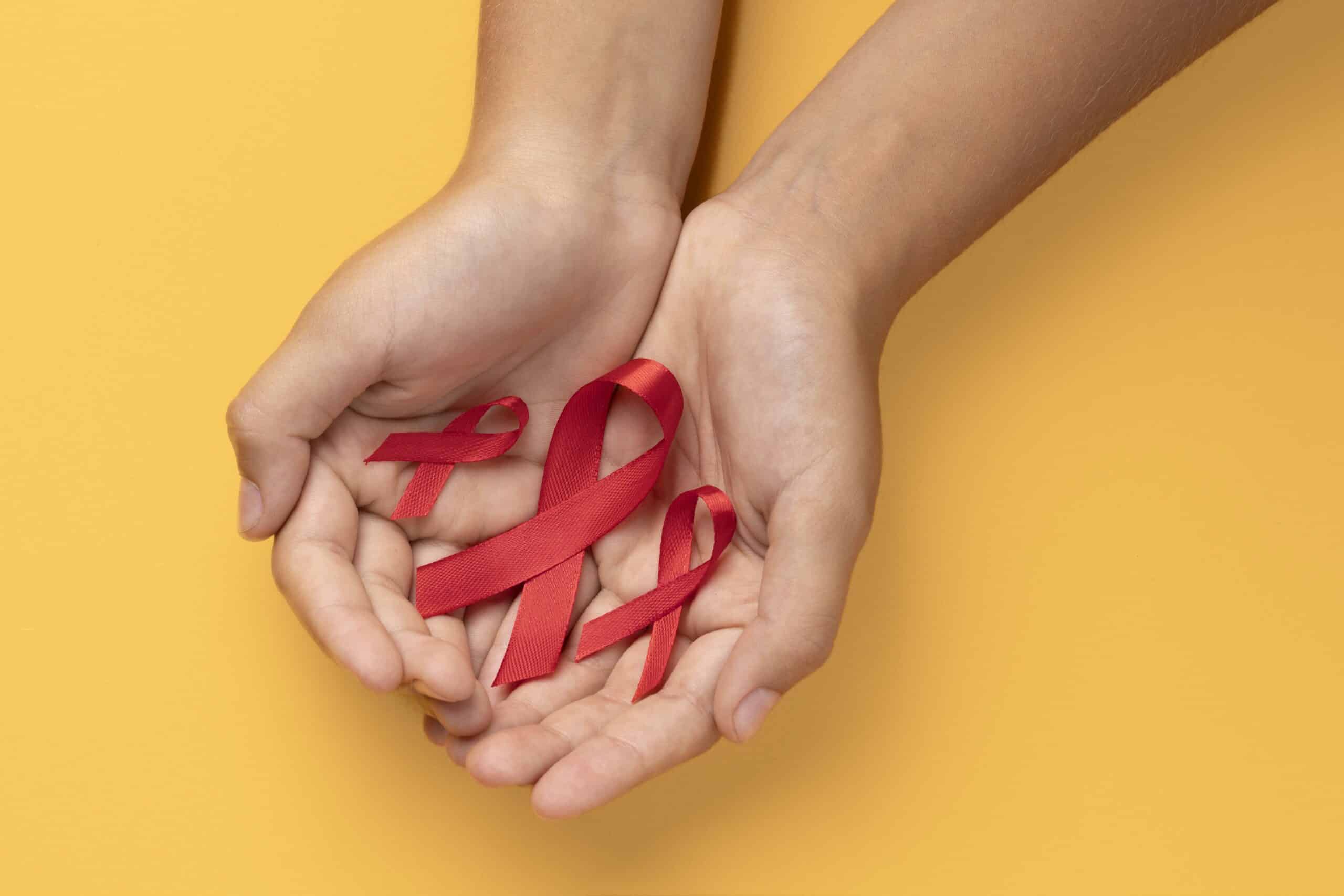HIV (Human Immunodeficiency Virus) is a virus that over time attacks your immune cells and can prevent those cells from fighting different infections and diseases. Persons over 18 should be tested for HIV at least once, and regular HIV testing is recommended for those who are at higher risk of contracting HIV. For quick, reliable HIV testing in a comfortable environment, contact Equality Health today.
What is HIV Testing, and How Does it Work?
When your body gets exposed to viruses like HIV, your immune system produces antibodies. Similarly, antigens are proteins that will develop before antibodies. HIV tests help detect these antibodies, antigens, or RNA by examining your blood, oral fluid, or urine.
These are all the available HIV tests:
1. Antibody Tests
Antibody tests can be done quickly with a finger stick or blood drawn from the arm. Most rapid tests are antibody tests. Here, the medical experts look for your HIV antibodies through oral fluid or blood. These tests have a 23 to 90-day window period to detect HIV after exposure.
2. Antigen/Antibody Tests
The antigen/antibody test looks for both your HIV antigens and antibodies. It’s a lab test where your blood is tested after it’s drawn from a vein. Your body produces p24 antigen before the development of antibodies, so these tests can detect HIV earlier than rapid tests. The healthcare professionals in our clinic draw blood from your arm and send it to the lab. You can do this test after 18 to 90 days of the window period.
3. Nucleic Acid Tests (NAT)
Nucleic acid tests look for the virus’s genetic material in your blood. They draw blood from your vein and send it to the lab. This method will give you a results known as the “viral load”. It can detect HIV the earliest, after a 10 to 13-day window period.
Visit our clinic to get familiar with all the HIV testing options!
Why is HIV Testing Important?
HIV testing is your best gateway to receiving effective treatment if the test is positive. If the test is negative, we can discuss options to prevent HIV.
Here are some of the benefits of doing an HIV test:
- Know your HIV status: The only way for you to find out your HIV status is by doing a test. Knowing your status keeps you, your partner, and your baby, if pregnant, safe.
- Stop the transmission to babies: If you’re a pregnant woman who is HIV positive, you can take medicines to help decrease the risk of transmission to the child.
- Gives peace of mind: If you test negative, we can discuss prevention methods. However, if you test positive, you can proceed forward to receive proper medical treatment to reduce complications from the virus.
Contact our professionals to learn more about HIV testing.
Our HIV Testing Services in Shawnee, OK, Include:
If you’re looking for HIV testing services, our clinic is undoubtedly the best option. We offer different services related to prevention, testing, and/or treatment.
We provide our patients with different types of test options, such as:
1. HIV Antibody Tests
The HIV antibody test is one of the most trusted and popular HIV tests. In this test, our medical professionals will look for HIV infection by locating antibodies in your immune system.
Our professionals usually take this test by drawing blood from your vein and taking it to a lab. It can also be done as a rapid test, which just requires a finger stick.
Advantages:
- Most economical option as compared to other testing techniques.
Limitations:
- It has a seroconversion window (i.e., the window time between the time of HIV infection and the origin of detectable antibodies). If these tests are done too soon, sometimes they give you false negative results.
Testing Window:
- You’ll get reliable results from this test within three to twelve weeks after the exposure. If you get a negative result during the seroconversion window period, you should retest after a few weeks to confirm the negative result.
2. HIV Antigen Test
The antigen test is one of the most common tests that is widely popular in the United States due to its effectiveness. We usually perform this test in a lab.
This test will identify antigens or proteins present on the surface of HIV that were developed before HIV antibodies.
Advantages:
- It helps to identify HIV infection earlier than antibody tests, even during a window period when antibodies are not yet present.
- The test is highly accurate if you perform it within the proper window period.
Limitation:
- Despite being highly sensitive, it sometimes produces erroneous positive results due to the cross-reactivity of other substances in your body.
- Whenever your antigen test results are positive, you must perform an antibody test to confirm your diagnosis.
Window Period:
- This test can identify infections as early as two to three weeks after exposure. The window period of your test varies depending on the test type. So, if your results are negative during the window period, you should get a confirmation test.
3. Detect HIV with PCR Tests or Nucleic Acid Tests(NAT)
NATs detect genetic material of the virus in your body in the early stages of infection. If you want early detection, this is the right test for you.
The genetic material of your virus is directly detected by these tests (DNA or RNA).
Advantages:
- PCR tests are highly accurate, so there’s less chance of false negative or positive results.
- NAT offers proof of HIV infection when an antigen or antibody test usually requires a confirmatory test.
Limitations:
- PCR/NAT requires specialized lab equipment and qualified personnel to get accurate results and limit its applicability in certain situations. It gives you 99% accurate results, but it is costlier and results take longer than other methods of HIV testing.
Window Period:
- NAT detects HIV within a 10 to 33-day test window after exposure.
The medical professionals at our clinic will test you for HIV using any of the tests mentioned above. So, get the best HIV test at Equality Health. You can also book an appointment with us on our website!
Procedure and Preparation for HIV Testing
In our clinic, we follow these detailed steps to make sure our patients get clear results.
Step 1: Pre-test Counseling
Our health professionals will guide you with pre-test counseling to provide detailed information before doing an HIV test.
Here’s what our pre-test counseling entails:
- HIV prevention measures: Our professional will explain to you about prevention measures for HIV, like using condoms, abstinence (not having sex), not using shared needles, and more.
- HIV transmission: We’ll also educate you about the methods of HIV transmission, like anal or vaginal sex, shared needles, syringes, and injection equipment for drugs.
- Evaluation of risk factors: Our professionals will evaluate your risk factors, like sexual behavior or drugs.
- Provide information about the HIV testing procedure: As a tester, you might not know which test you should choose. Don’t worry; we’ve got you covered! Our professionals will suggest the right test type and its corresponding window times.
- Discuss personal health data confidentiality: Our medical professionals make sure that all of your health data is secured, private, and confidential.
Step 2: Our Testing Procedures
We provide our patients with specific HIV tests based on their counseling session and situation.
The tests that we do in our clinic are:
- Antibody tests: These tests detect antibodies produced by your immune system in response to HIV infection.
- Antigen Tests: This test identifies antigens or proteins present on the surface of HIV that develop before HIV antibodies. It can detect HIV infection much sooner as compared to other tests.
- Nucleic Acid Tests (NAT): This test is highly renowned for its ability to detect infection in very early stages. There’s less possibility for you to get a false negative or positive result, as this test is highly accurate.
Step 3: Sample Collection
Usually, we collect your sample through blood. In this sample collection method, we draw blood from the vein in your arm or finger prick to get an HIV-testing blood sample.
Step 4: Send a Sample to the Lab for Evaluation
Once your sample is collected, we send it to the accredited lab for further evaluation and analysis.
Here’s how we carry out the testing:
- First of all, we quickly analyze your sample using enzyme immunoassays to determine if your sample contains HIV antibodies or not.
- Then, your sample is tested for specific HIV proteins, like the p24 antigen.
- We use methods like nucleic acid amplification (NATs) or polymerase chain reaction (PCR) to measure your virus’s genetic material (RNA or DNA).
Step 5: Receive Test Results
We will return your test results within 30 minutes (antibody tests) and 1 to 2 days (antigen or antibody tests). However, you will need to wait for a week or more if you are looking for confirmatory NAT results.
You’ll get positive, negative, or indeterminate results.
- Positive: The positive result denotes that you’ve tested HIV-positive.
- Negative: The negative result denotes that you’re HIV-free.
- Indeterminate: This denotes that the test couldn’t provide a clear positive or negative result.
If you have any doubts, consult with one of our medical professionals.
Step 6: Post-test Counseling
We provide counseling and emotional support to those who get positive results on the test, as well as counseling on HIV prevention for those who test negative.
Also, we provide HIV, Hepatitis, and STD treatment in Oklahoma City. So, if you live anywhere near the city of Shawnee, OK, you don’t need to worry about finding treatment in this area.
You can book an appointment anytime with us to get post-test counseling.
How Often Should You Get Tested for HIV?
We’d suggest you get tested for HIV, depending on the following factors:
- If you’re sexually active, test for HIV annually.
- You should consider frequent testing (every three to six months) if you have multiple partners.
- If you inject drugs, you should undergo regular HIV testing at least once or twice a year.
- If you’re pregnant, test for HIV in the first trimester. Also, retest it in the third trimester if the risk persists.
Moreover, if you’re involved in unprotected sexual activity with vaginal, anal, or oral contact, there’s a higher risk of transmission. You should use clean needles instead of shared needles, syringes, or other drug equipment.
Cost of HIV Testing in Shawnee, OK
We don’t charge our patients any money for rapid HIV tests. Even if you don’t have any insurance coverage, we have a program for you. We’ve contracted with over 30 pharmacies to provide the most effective medications at reasonable prices. Our prime motive is to provide an economic pricing option so there aren’t any massive expenses out of your pocket. At Equality Health, we offer HIV testing at an affordable cost!
Support and Resources for HIV Testing in Shawnee, OK
We provide our patients with numerous support and resources for HIV testing; some of them are listed below:
- Pre-test and post-test counseling: Our professionals provide our patients with pre-test and post-test counseling. Through our pre-test counseling program, we help patients learn about the types of tests and treatment options in detail.
- Emotional support: When you do an HIV test and get positive results, our professionals will guide you further regarding the treatment procedure. Not only that, they also provide you with emotional support to help you tackle problems despite the challenges.
- Specialists knowledgeable: Our specialists provide you with detailed information about precautions, prevention, test options, and treatments.
- Local and online resources about HIV education: Even if you’re unfamiliar with HIV terms and procedures, we’ve got you covered. Our professionals will provide you with local and online resources about HIV education as per your area of willingness to learn.
- Patient Portal: We facilitate our patients with a patient portal. This portal makes it convenient for both our patients and healthcare providers to have a fluent and convenient interaction.
Contact Equality Health for HIV Testing in Shawnee, OK
You can contact us for your HIV test, with our contact information: (405) 761-2762. We are open from Monday to Thursday during business hours, 8:30 a.m. to 5:30 p.m. Our clinic remains closed on Friday, Saturday, and Sunday. You can also request an appointment with our healthcare professionals on the Request Appointment page. Contact us right away to be in touch with our expert healthcare professionals. We also provide services for HIV treatment, PrEP for HIV prevention, Hepatitis C testing, Hepatitis C treatment, STD Treatment, and STD testing in Shawnee.
Frequently Asked HIV Testing Questions (FAQs)
The perfect window period for your HIV testing is 18 to 90 days after exposure, but this can vary based on which type of test. In any case, if you test negative during the seroconversion window, you should retest within a few weeks to confirm the results.
No, you cannot request a specific HIV test. At our clinic, we test HIV through an antibody test, antigen test, or nucleic acid test based on window time, body type, and risk factors. Although you can’t request a test, you and our medical professionals consult together to figure out which test is the best option for you. Along with tests, we provide our patients with pre-test and post-test counseling.
Yes, we keep our patients’ health data and information 100% private and confidential. The medical information is not shared with any other individual without receiving your consent. We take strict action against anyone who tries to breach the confidentiality of our patients.
If you get positive HIV results, these are the steps we’d suggest you follow after contacting the medical professionals at Equality Health:
- Post-test counseling
- Select your treatment procedure
- Initiate HIV treatment
- Get antiretroviral medications
- Monitor treatment plan progress every 3–6 months
- Create a daily routine to take medications
- Consult right away if any difficulty arises
- Manage the side effects of HIV treatment
- Get further treatment for prevention
Yes, we provide our patients with same-day or expedited HIV testing options if they have urgent needs. Our rapid tests can have results as quickly as 20 minutes after performing the test.



